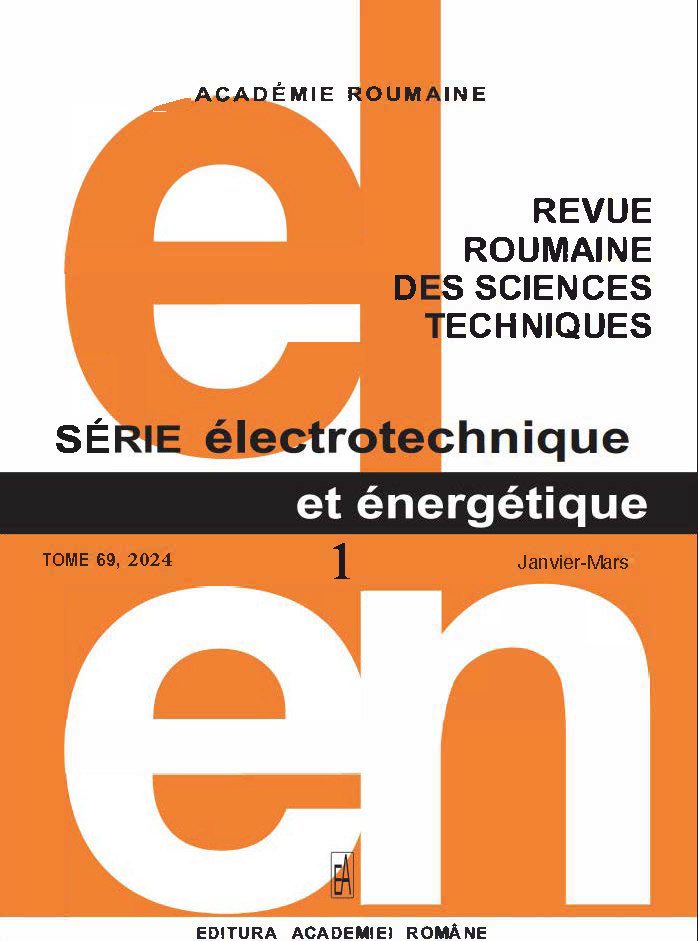A PROPOSAL OF DIGITAL IDENTITY MANAGEMENT USING BLOCKCHAIN
DOI:
https://doi.org/10.59277/RRST-EE.2024.1.15Keywords:
Self-Sovereign Identity, Self-sovereign identity, Digital identity management, Digital Identity Management, Blockchain, Verifiable Credentials, Verifiable credentialsAbstract
Digital identity is the representation of a person in the digital environment. Nowadays, digital identity has become a very important topic when most activities are moved to the online world. To be secured and respect data privacy, this digital identity must be controlled by its owner, not any other third parties. This paper aims to propose a system for digital identity, presenting its architecture, features, and implementation specifications. This system brings advantages that will also be exposed along with real-life use case scenarios, all proving the necessity of transitioning to a modern identity management model like the Self-Sovereign Identity model. The Self-sovereign identity model is based on blockchain and is fundamental for the digital identity system conceived through research.
References
(1) O. White, A. Madgavkar, J. Manyika, D. Mahajan, J. Bughin, M. McCarthy, O. Sperling, Digital identification: A key to inclusive growth, McKinsey Global Institute (2019).
(2) F. Wang, P. De Filippi, Self-sovereign identity in a globalized world: credentials-based identity systems as a driver for economic inclusion, Front Blockchain, 2 (2020).
(3) R. Brescia, Social change and the associational self: protecting the integrity of identity and democracy in the digital age, Penn State Law Review, 125, 3 (2021).
(4) Š. Čučko, M. Turkanović, Decentralized and self-sovereign identity: systematic mapping study, IEEE Access, 9, pp. 139009–139027 (2021).
(5) G. Laatikainen, T. Kolehmainen, P. Abrahamsson, Self-sovereign identity ecosystems: benefits and challenges, Proceedings of the 12th Scandinavian Conference on Information Systems (Article 10) (2021).
(6) ***Juniper Research. Available at: https://www.businesswire.com/news/home/20230226005042/en/Juniper-Research-Active-Digital-Identity-Apps-to-Surpass-4.1-Billion-by-2027-as-Third-party-Platforms-Look-to-Leverage-Civic-Identity-Systems.
(7) D. Pöhn, M. Grabatin, W. Hommel, eID and self-sovereign identity usage: an overview, Electronics, 10 (2021).
(8) A. Giannopoulou, Digital identity infrastructures: a critical approach of self-sovereign identity, DISO, 2 (2023).
(9) ***Goode Intelligence. Available at: https://www.goodeintelligence.com/press-releases/goode-intelligence-forecasts-that-over-three-billion-digital-identities-will-be-issued-by-2025/
(10) J. Keil, Self-sovereign identity: use cases, level of maturity and adoption (2020).
(11) ***uPort. Available at: https://www.uport.me.
(12) A. Panait-Drăgnoiu, R. Olimid, A. Stefanescu, Identity management on blockchain - privacy and security aspects, Proceedings of the Romanian Academy - Series A: Mathematics, Physics, Technical Sciences, Information Science, 21 (2020).
(13) ***Shocard. Available at: https://shocard.com.
(14) ***Bitnation. Available: https://tse.bitnation.co.
(15) J. Uchill, Microsoft demos SSI open standards at identiverse: ‘This is the power of standards’. Available at:
(17) Z. Song, Y. Yu, The digital identity management system model based on blockchain, International Conference on Blockchain Technology and Information Security (ICBCTIS), 2022, pp. 131–137 (2022).
(18) U. Der, S. Jähnichen, J. Sürmeli, Self-sovereign Identity – opportunities and challenges for the digital revolution, arXiv (2018).
(19) R. Soltani, U. Nguyen, A. An, A survey of self-sovereign identity ecosystem, Security and Communication Networks (2021).
(20) F. Schardong, R. Custódio, Self-sovereign identity: a systematic review, mapping, and taxonomy, Sensors, 22 (2022).
(21) A. Preukschat, D. Reed, Self-Sovereign Identity: decentralized digital identity and verifiable credentials, Manning Publications Co. (2021).
(22) M. Sroor, N. Hickman, T. Kolehmainen, G. Laatikainen, P. Abrahamsson, How modeling helps in developing self-sovereign identity governance framework: An experience report, Procedia Computer Science, 204 (2022).
(23) T. Matsuzaki, Verifiable Credentials: Decentralized Credential Flows (2020).
(24) Y. Liu, D. He, M.S. Obaidat, N. Kumar, M.K. Khan, K.R. Choo, Blockchain-based identity management systems: A review, Journal of Network and Computer Applications, 166 (2020).
(25) A. Olteanu, R.N. Pietraru, S.M. Olanescu, M. Moalfa, Innovations in the educational process in technical universities based on an ontology for interactive teaching system, RRST-EE, 66, 1, pp. 53–58 (2021).
(26) I.C. Stanica, F. Moldoveanu, M.I. Dascalu, I.V. Nemoianu, G.P. Portelli, Advantages of telemedicine in neurorehabilitation and quality of life improvement, RRST-EE, 66, 3, pp. 195–199 (2021).
(27) L. Meng, Q. Zhao, M. Song, Y. Jian, H. Tian, Authenticated key agreement scheme based on blockchain for AMI communication security, RRST-EE, 68,2, pp. 218–223 (2023).
Downloads
Published
Issue
Section
License
Copyright (c) 2024 REVUE ROUMAINE DES SCIENCES TECHNIQUES — SÉRIE ÉLECTROTECHNIQUE ET ÉNERGÉTIQUE

This work is licensed under a Creative Commons Attribution-NonCommercial-NoDerivatives 4.0 International License.


